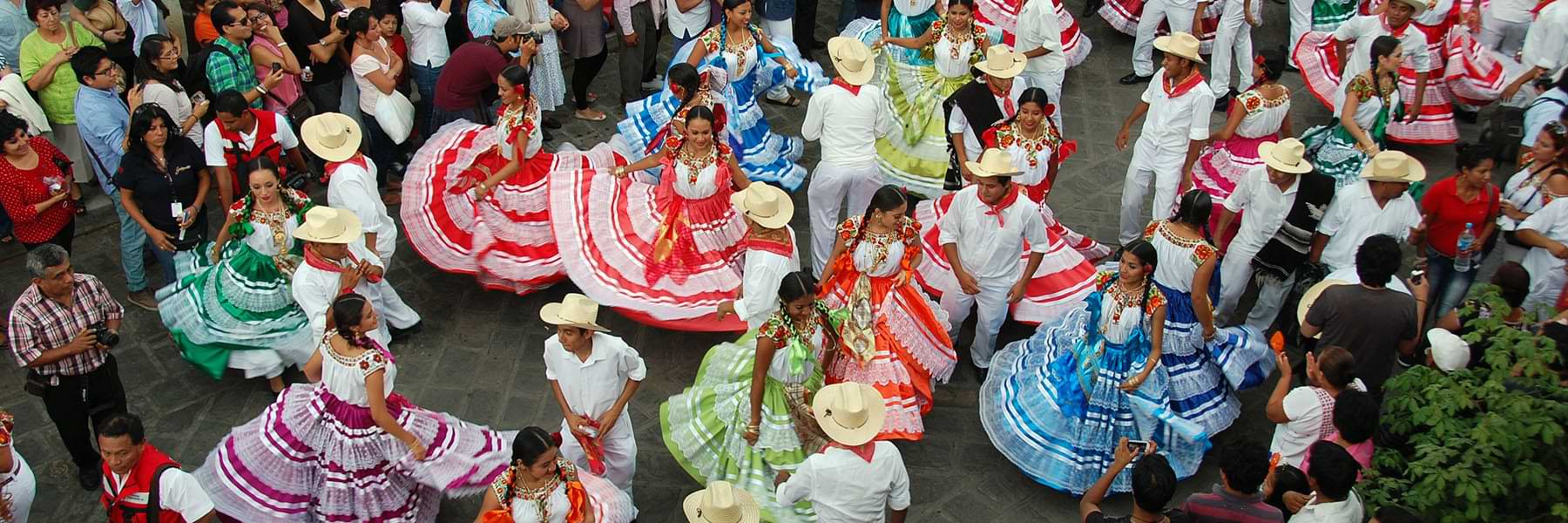Dual Degrees
Language and Final Requirements
- Reading proficiency in Spanish, Portuguese, or an indigenous language of Latin America and the Caribbean
- Final paper, exam, or thesis.
For more information on courses, language requirements, grades, and final requirements, visit the M.A. page.
The Center for Latin American and Caribbean Studies (CLACS) offers a joint degree program in cooperation with the Maurer School of Law. The program is designed to provide students with a thorough grounding in the Latin American region together with professional legal training. The joint degree program allows students to complete the M.A. and J.D. with a total of 103 credit hours rather than the 118 hours that would be required to complete the two degrees separately. Under this program, the two degrees must be awarded concurrently.
Requirements:
- 24 credit hours of advanced courses in the College of Arts and Sciences relating to Latin American and Caribbean Studies, including the interdisciplinary seminar LTAM-L501 (3 credits)
- 79 credit hours in Law, including all required courses for the J.D.
Learn more about the requirements for the J.D. from Maurer School of Law.
The Center for Latin American and Caribbean Studies and the Kelley School of Business jointly offer a three-year program that qualifies students for two master's degrees. Study for these two degrees in the dual degree can be completed in a total of 66 credit hours rather than the 84 credit hours that would otherwise be required to take the two degrees separately (since certain courses contribute to both degrees). The two degrees must be awarded simultaneously.
Requirements:
- 24 credit hours of advanced courses in the College of Arts and Sciences relating to Latin American and Caribbean Studies, including the interdisciplinary seminar LTAM-L501 (3 credits)
- 42 credit hours in Business under the requirements of the M.A./M.B.A. degree
Learn more about the requirements for the M.B.A. from Kelley Business School.
The Center for Latin American and Caribbean Studies offers this dual degree program in cooperation with the Department of Information and Library Science in the School of Informatics and Computing. The program prepares students for a wide range of careers requiring a combination of technical skills in information science, foreign language proficiency, and area expertise. Study in the dual degree program allows students to complete the M.A. and M.I.S. with a total of 54 credit hours rather than the 72 hours that would be required to take the two degrees separately. Under this program, the two degrees must be awarded simultaneously.
Requirements:
- 21 credit hours of advanced courses in the College of Arts and Sciences relating to Latin American and Caribbean Studies, including the interdisciplinary seminar LTAM-L501 (3 credits)
- 30 graduate credit hours in Information and Library Science, including all required courses for the M.I.S.
Learn more about the requirements for the M.I.S. from the Department of Information and Library Science in the School of Informatics and Computing.
The Center for Latin American and Caribbean Studies and the Department of Information and Library Science (ILS) in the School of Informatics and Computing jointly offer a three-year program that qualifies students for two master's degrees. Study for these two degrees in the dual degree can be completed in a total of 51 credit hours rather than the 66 credit hours that would otherwise be required to take the two degrees separately. During the dual degree, specific courses contribute to both degrees. The two degrees must be awarded simultaneously.
Requirements:
- 21 credit hours of advanced courses in the College of Arts and Sciences relating to Latin American and Caribbean Studies, including the interdisciplinary seminar LTAM-L501 (3 credits)
- 24 graduate credit hours in Information and Library Science, including all required courses for the M.L.S.
Learn more about the requirements for the M.L.S. from the Department of Information and Library Science in the School of Informatics and Computing.
The Center for Latin American and Caribbean Studies and the O'Neill School of Public and Environmental Affairs jointly offer a three-year program that qualifies students for two master's degrees. Study for these two degrees in the dual degree can be completed in a total of 60 credit hours rather than the 78 credit hours that would otherwise be required to take the two degrees separately. The two degrees must be awarded simultaneously.
Requirements:
- 24 credit hours of advanced courses in the College of Arts and Sciences relating to Latin American and Caribbean Studies, including the interdisciplinary seminar LTAM-L501 (3 credits)
- 36 credit hours in the O'Neill School of Public and Environmental Affairs, including all required courses for the M.P.A.
Learn more about the requirements for the M.P.A. from the O'Neill School of Public and Environmental Affairs.
This dual degree program takes advantage of the ability of students to specialize in Latin American and Caribbean-related public health issues in a way that enables specific coursework to be counted toward elective and research requirements for both degrees. The dual degree pairs a Master of Arts (M.A.) degree in Latin American and Caribbean Studies with a Master of Public Health (M.P.H.) that includes a Behavioral, Social and Community Health Concentration (BSCH). This dual degree program with the School of Public Health can be completed in a total of 65 credit hours rather than the 73 credit hours that would otherwise be required to take the two degrees separately. The two degrees must be awarded simultaneously.
Requirements:
- 21 credit hours of advanced courses in the College of Arts and Sciences relating to Latin American and Caribbean Studies, including the interdisciplinary seminar LTAM-L501 (3 credits)
- Any readings, independent research projects, and internships must be focused on issues related to public health in the Latin American and Caribbean region
- 44 credit hours of required courses for the M.P.H. degree
Learn more about the requirements for the M.P.H. from the School of Public Health.


